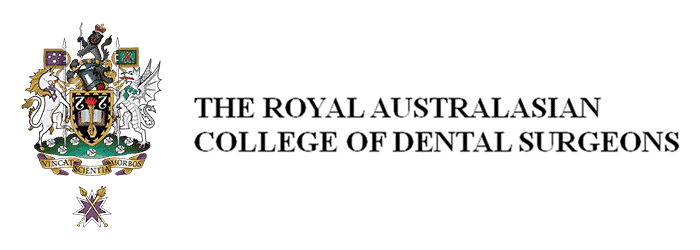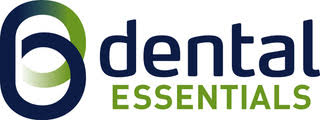Our team’s roundup for 2022
Another year’s end is upon us, and our festive season edition has something for everyone. We talk cyber security, building valuation, solar power, and WA’s new legislation on towing. Read the articles below.
Article 1: Cyber security: what you can do to protect yourself
Many of us are feeling uneasy after data leaks from several notable corporations. We’re left wondering how, in this age of technology, it occurred in the first place, why so many companies seem to have been hit in a short span of time, and finally what we can do about it.
We recently spoke to David Baines, FocusNet’s cyber security specialist, who shared a few ways you can identify potential cyber risks and help protect yourself against hackers or identity fraud.
Password updates, authentication, and credit reports
With our hectic lifestyle, it’s easy to allow long lapses of time between password updates. FocusNet recommends LastPass, an online password ‘vault’, to store and manage your passwords. LastPass has a free service option and notifies you when passwords are at risk of breach.
Another measure you can take is setting up multifactor authentication to layer up on security. You can also use Google Authenticator to set this up. Preventing new lines of credit by setting up a credit report ban is another method David recommends. Essentially this stops a credit reporting body from using and disclosing your information to a credit provider.
How increased cyber-attacks have affected insurance policies
With the frequency of occurrences year on year, certain aspects of some policies have been affected. The guidelines are now more centred around specific industries which are at higher risk of being exposed to attacks, meaning that in some areas it’s getting harder to place insurance.
We need to ensure our clients have the right intellectual property programmes, backups, and securities in place, and that they’re regularly maintained because the larger corporations are having the most issues. They’re needing to create updates which need to be implemented in a timely fashion, with aspects like dual certification being a big driver because of more remote working and remote accessing of networks.
Reviewing cyber security protection insurance policies
Tailoring policies to your business setup will further protect you from attacks on your IP and potentially damaging your professional reputation due to exposure of your customers’ personal data. More detailed information can be found here.
Article 2: Has your building been valued in the past 12 months?
If not, you could be underinsured. The rise of building costs over the past two years means that there has been a roll-on effect to insurance policies. Add to this the shortage of tradies, the soaring demand for them, and the increase in their fees, and some building values have increased and should be reassessed. In most states, valuation is required at least once every five years, however, due to the circumstances mentioned above, it may be necessary to have an earlier valuation.
Recent research from Steadfast (Australasia’s largest broker network) reports the following statistics:
- Building costs in Australia have risen by 11% throughout the last year
- Average motor claims are up by 10.8% since last year
- Plumbing supplies have risen 12% throughout this year
- Motor vehicle spare parts (including paint) have soared by 28%
- Shortages in materials and labour is causing an increase in replacement costs, placing importance on you to review sums insured.
This is more relevant if you have home, landlord, and strata insurance where sums insured are typically given at your discretion as opposed to motor insurance. For residential properties (up to $2 million), you can use the Cordell Building Calculator as a broad guide for valuation, which also considers removal of debris and some legal or professional fees.
Article 3: Risk management for solar power
With the increase in people using solar energy, we thought to share a few tips on how to manage potential risks that, if you’re unaware, might affect you should you need to make a claim.
Don’t scrimp on installation
Ensure whoever you get to install your system has the appropriate approval needed to get full government rebates. You’ll need to consider elements such as corrosion-resistant racking, mounting systems, cabling, and roofing inspections prior to installing your system.
Know the risks of nature’s elements
Storms and large hail are becoming more prevalent, along with strong winds and frosty conditions. Sufficient insurance will protect you against costly occurrences like cracks in panels, storm and hail damage—all of which are costly to replace or repair. With solar comes electricity and combustible materials which can lead to fires. If the system catches fire, it can cause toxic fumes to be released, limiting firefighters from dealing with it quickly. Ensuring you’ve covered all bases to minimise fire risk may also protect you from exorbitant damage and potential repair costs.
If you’re using solar power and want to be certain you’ve got the right cover, we’re here to answer your questions and would love to help. Call us on 08 9382 5600 or today.
Article 4: Know your rights: WA’s new legislation on towing
Earlier in November, consumer protection measures around towing vehicles were updated and confirmed for Western Australians. WA was the only state not under any legislation for towing, however, that’s now changed to mean tow truck drivers must quote a price before towing, salvaging or storing a vehicle.
The tow truck driver must complete a written statement including the vehicle type and registration, incident scene information, the maximum fee charged and a signature from the driver of the vehicle or person authorising the tow. As a consumer, you now have the right to refuse a towing service if any of the components above aren’t stated or are incomplete.
Other towing tips to note
- Ask the driver where they’re going to take your car
- If you want your car towed somewhere specific, you can instruct the driver to do so (i.e. if you have a preferred repairer)
- Be sure to get the name, phone number and company name of the driver
- Note the address of the holding yard they’re taking your vehicle to
You’ll find full details of the updated legislation on the Department of Transport website. If you’re an existing client, you might like to start your claims process online. You can start your claim by clicking here.











